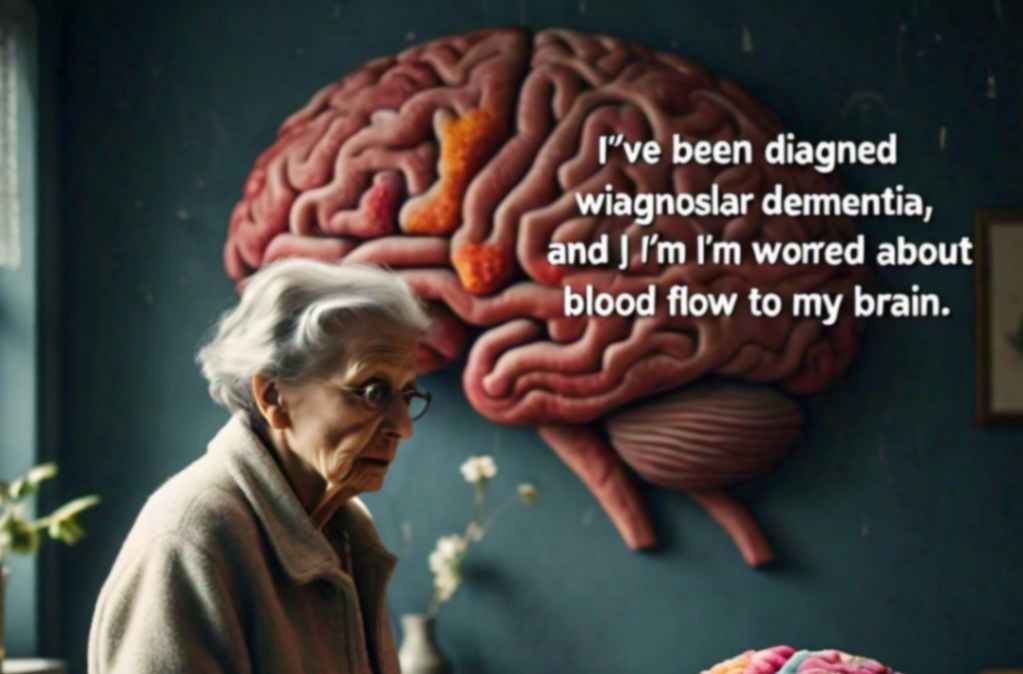Vascular dementia is a common condition caused by poor blood flow to the brain, causing problems with memory and thinking. Families and caregivers need to know how long a person with this disease can live. This article provides important facts, an explanation of the factors influencing life expectancy, and recommendations for enhancing quality of life. By being aware of these variables, you can provide better care for those who suffer from vascular dementia. Continue reading to find out more about treating this challenging illness.
Factors Influencing Life Expectancy:
Age and Comorbidities:
Older age significantly affects life expectancy in people with vascular dementia. Elderly people often have other health problems, such as heart disease or diabetes, which complicate their condition and reduce their lifespan even further.
Severity and Progression of Dementia:
The severity and speed of dementia progression play an important role. Rapid cognitive decline is usually associated with a shorter life expectancy, while slower growth may allow for a longer, although challenging, life.

Lifestyle and Management:
Healthy lifestyle choices can have a positive impact on life expectancy. Regular exercise, a balanced diet, and avoiding smoking can help manage the symptoms of vascular dementia and other related health conditions, possibly leading to life extension.
Medical and Therapeutic Interventions:
Effective medical treatments and therapies are essential. Medications, physical therapy, and regular medical checkups can help control symptoms and improve overall health, which can contribute to patients living longer.
Statistical Life Expectancy Data:
General Statistics:
On average, life expectancy after a diagnosis of vascular dementia ranges from five to ten years. This varies based on individual health, severity of symptoms, and effectiveness of treatment, highlighting the importance of early detection and comprehensive care.
Variability in Life Expectancy:
Patients can have quite different life expectancies. This heterogeneity may be influenced by variables including overall health, treatment plan adherence, and recurrent stroke. Gaining knowledge of these components could aid in creating individualized care plans that lengthen life expectancy.
Factors leading to variability:
Certain factors such as the presence of other medical conditions, lifestyle choices, and access to health care can significantly affect life expectancy. Because every patient has a different health profile, customized care strategies are needed to achieve the best possible results.
Case Studies and Real-Life Examples:
Real-life cases show that life expectancy in people with vascular dementia can vary greatly. With proper care and management, some can live for many years, while others may decline quickly. This highlights the importance of personalized treatment plans.
Quality of Life Considerations:
Psychosocial Impact:
Vascular dementia affects emotional and psychological well-being, leading to depression and anxiety. Both patients and caregivers experience significant stress. Strong social support systems and counseling can help improve mental health and enhance quality of life.
Caregiving and Support:
Caregivers play an important role in managing daily activities and medical needs. Access to resources and support groups can reduce caregiver burden, provide needed support and improve overall quality of life for both patients and caregivers.

End-of-Life Care:
The goals of end-of-life care include dignity and comfort. Palliative care choices are crucial; these include emotional support and pain control. Making advance directive plans gives families piece of mind by guaranteeing that patients’ desires are honored.
Resources for Caregivers:
Caregivers benefit from a variety of resources, such as respite care, educational programs, and counseling. These resources help them perform their responsibilities better, reduce stress and prevent burnout, ultimately leading to better care for dementia patients.
Current research and future directions:
Ongoing studies and trials:
Researchers are looking for new treatments and interventions for vascular dementia, including drugs that target blood vessel health and cognitive function. Clinical trials aim to improve outcomes and develop more effective treatments to manage this complex condition.
Potential Breakthroughs:
Treatment options for vascular dementia appear promise when it comes to emerging technology like brain stimulation and precision medicine. Utilizing biomarkers and imaging tools, early detection methods may allow for intervention prior to the onset of symptoms, thereby modifying the course of the disease and extending life expectancy.

Challenges in Research:
Researching vascular dementia comes with its own set of hurdles, like figuring out how blood vessel problems and brain degeneration work together, and finding treatments that tackle both effectively. Overcoming these obstacles is key to improving care and helping people live longer with the condition.
Holistic Approaches:
Future research may focus on holistic approaches, focusing on lifestyle interventions, social support systems, and advanced technologies to comprehensively manage vascular dementia. Working together, researchers, doctors, and caregivers can make things better for patients and improve their quality of life.
Read More About 7 Stages of Frontotemporal Dementia.
Conclusion:
Understanding life expectancy in vascular dementia is important for patients, caregivers, and health care providers. Despite challenges, including variability and comorbidities, early detection and comprehensive care can positively impact outcomes.

By addressing lifestyle factors, providing support, and advancing research, we can improve the quality of life and potentially extend the survival of those affected by vascular dementia. Continued awareness, research, and collaboration are key to improving care and support for individuals living with this condition.
FAQs:
How does vascular dementia differ from other types of dementia?
Vascular dementia is caused by reduced blood flow to the brain, often due to a stroke or disease of the small veins, which leads to cognitive decline. Unlike Alzheimer’s disease, in which protein builds up in the brain, vascular dementia is directly related to vascular problems.
Can lifestyle changes affect life expectancy in vascular dementia?
Making healthy lifestyle choices can boost how long someone lives with vascular dementia. Doing regular exercise, eating well, controlling things like high blood pressure and diabetes, and staying away from smoking can all help slow down the illness and make you healthier overall.
Related:
Which of these is not Important for Positive Mental Health?
Mental health is the foundation of a happy and balanced life. It is influenced by…
What is Commonly Misdiagnosed as Pink Eye?
Pink eye, or conjunctivitis, is a common eye problem. It causes redness, itching and sometimes…


